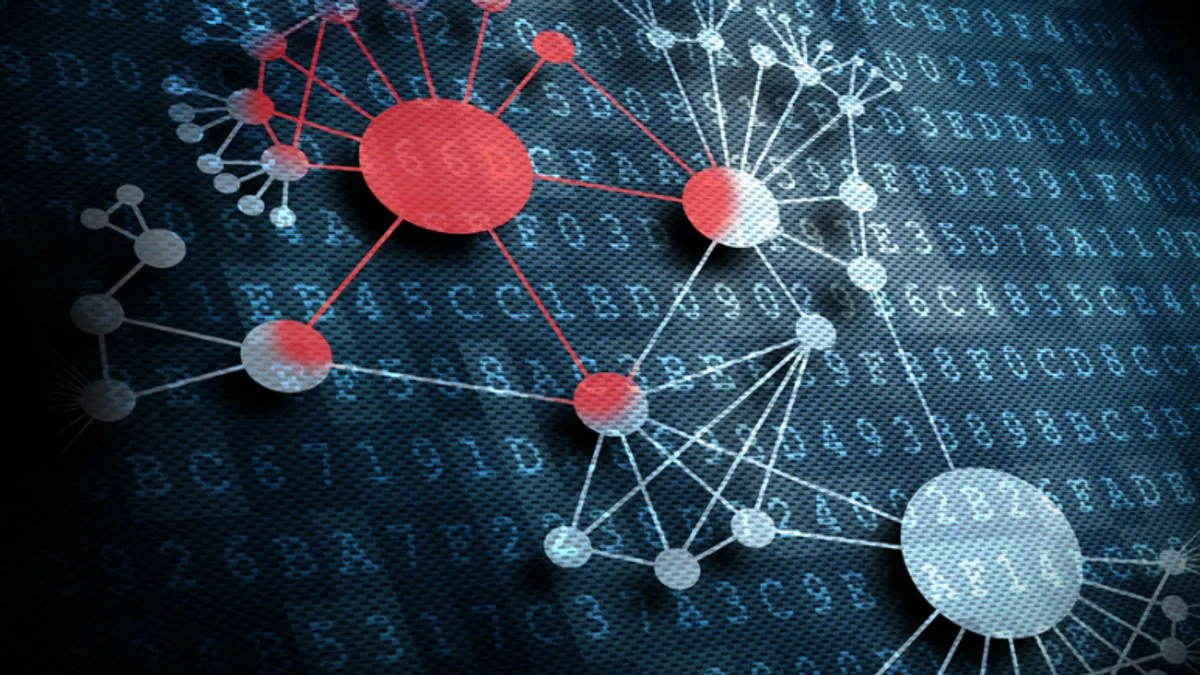When Supply Chain Dive recently published an article, we ran into a style question. Which was the correct term: digitization or digitalization? Were they the same? Did it matter which term we used?
After doing some research and consulting colleagues, the answer was only slightly more clear. It turns out that not everyone agrees on a definition. While we ended up using "digitalization," even editors from a fellow Industry Dive site recommended using the other term. And we learned that some companies have strong opinions on the matter, and some don't care (or notice) at all. For those with strong views, the difference in terms represent the difference in the way a business is run, and how to transform a business using digital data.
Is it a business operations issue? Is it an issue at all? We polled our readers about it.
While we didn't specifically ask Michael Armanious to comment on the poll results, he probably would not be surprised by the findings.
"It seems that often people do refer to these two words interchangeably," said Armanious, vice president of sales and marketing at Datex, a 3PL and warehouse management software company.
"I think that this may be not only because the terms are similar, but also for a different reason altogether. Digitization and digitalization go hand-in-hand," he said. "For many people, the concepts are viewed as one related, sequential process. Digitization takes a disciplined approach and standardizes business processes. The process takes data from one form and transforms into a digital format. Digitalization then uses the digital data and optimizes the operations, giving it greater capabilities. In a way, it is an intuitive process, digitization to digitalization."
We could just leave it at Armamious' succinct assessment, but we'll dive in a little deeper. Of course, exact definitions of these terms vary based on who you ask and what industry they're in, but let's start with Gartner's simple definitions:
- Digitization: the process of changing from analog to digital form
- Digitalization: the use of digital technologies to change a business model and provide new revenue and value-producing opportunities; the process of moving to a digital business
So, digitization is the foundation of the pyramid, and digitalization builds on it.
Here's another way to look at it. Digitization reproduces the process "as is" or optimizes the process by eliminating paper or reducing manual processes.
"Digitization is a good start, but it is not a Process Digitalization nor a Digital Transformation," writes Pedro Robledo, a business process modeling expert in Spain. "Digitalization allows the use of digital information to optimize business results and create new revenue, optimize costs, new customer experience ... offering so much value when applying digital technologies."
Jeanne Ross, principal research scientist for MIT's Center for Information Systems Research, also tackles this issue in MIT Sloan Management Review. Her take? "A digital transformation involves rethinking the company's value proposition, not just its operations. A digital company innovates to deliver enhanced products, services, and customer engagement," she writes. "Digitization is an important enabler of digital, but all the digitization in the world won't, on its own, make a business a digital company."
Remember: not everyone agrees on the definition
While we might have made a good case for when to use digitization versus digitalization, not everyone in the supply chain industry agrees.
PwC analysts Stefen Schrauf and Philipp Berttram, co-authored Industry 4.0: How Digitization Makes the Supply Chain More Efficient, Agile, and Customer-Focused in 2015, wherein they describe both processes, using "digitization" as their go-to word.
"Digitization brings down [silos], and the chain becomes a completely integrated ecosystem that is fully transparent to all the players involved," they write. Now, based on our definitions above, that could indeed be digitization.
Digitization is the foundation of the pyramid, and digitalization builds on it.

Supply Chain Dive
But they define Industry 4.0 as "digitization" – involving "companies orienting themselves to the customer through e-commerce, digital marketing, social media, and the customer experience ... In effect, we are evolving toward the complete digital ecosystem." Hmmmm. That sounds like digitalization.
Does it really matter which word is used?
If companies want to know they're talking about the same thing when discussing their use of digital technology, it probably helps to have a common definition. But most people would not just rely on a definition when working with a vendor – they would talk about goals and expectations, as well as a starting point. Awareness is key, though, to making a change, something Armanious argues is necessary to stay competitive.
Digitizing not only changes the data from one form to another, but rethinks and improves the way that work is being done. In this digital era, only 28% of established companies have successfully digitized, says Ross. Maybe when more companies have digitized, they'll start using common nomenclature.
Digitalization is often referred to as digital transformation or becoming a digital business, the next step after digitization. "In digitalization, the digital data is then used to optimize supply chain operations, to increase efficiency, accuracy, productivity, etc. Because of the increased complexity of warehouse, 3PL and global supply chain operations these days, companies need to move to digitalized operations or they will lose their competitive advantage and fall behind," Armanious said.
And like in much of life, actions speak louder than words. It's more important to digitize and digitalize, than never to have transformed digitally at all.






















